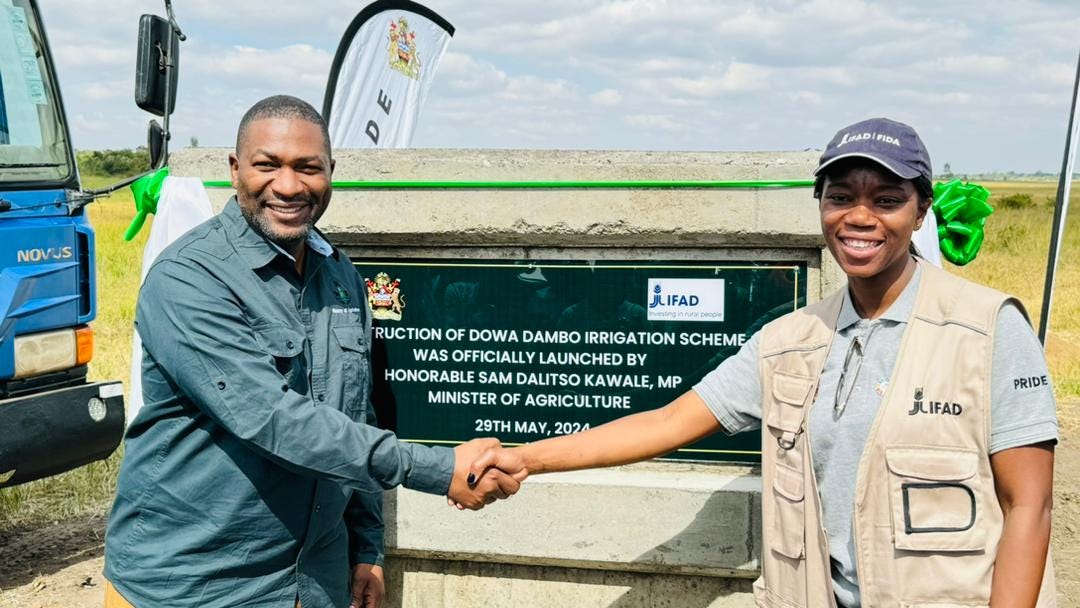Government Boosts Agriculture With New Irrigation Infrastructure
The launch marked Malawi's latest push to reduce reliance on rain-fed agriculture and increase food production through irrigation.

DOWA, Malawi- Malawi is strengthening its agricultural sector and improving food security through major investments in irrigation infrastructure, the government announced Wednesday at the launch of a new large-scale irrigation scheme, writes Bridgette Mwanoka.
The Dowa-Dambo Irrigation Scheme will encompass 453 hectares (1,119 acres) and include the construction of five dams to ensure a steady water supply, according to Agriculture Minister Sam Kawale.
"This project signifies our optimism in improving agricultural productivity and ensuring food security in rural areas through effective irrigation infrastructure," Kawale said at the launch ceremony.
The $52.4 million scheme is being funded by the Malawian government and the International Fund for Agricultural Development. It is part of the broader Programme for Rural Irrigation Development that has already completed seven other irrigation projects across the country.
"This initiative is poised to increase crop yields, improve food security, and enhance farmers' resilience to climate change," Kawale said.
In addition to boosting agricultural output, the government expects the irrigation investment to create jobs, drive economic growth and promote efficient water use to mitigate the impacts of climate change.
Bernadette Mukonyora, IFAD's country director in Malawi, said the irrigation strategy "will play a crucial role in boosting food production, ensuring water sustainability, and uplifting rural communities."
The Dowa-Dambo scheme will be built by the Foundation for Irrigation and Sustainable Development working jointly with the SAWA Group and SICO companies. It's expected to be completed within a year.
The launch marked Malawi's latest push to reduce reliance on rain-fed agriculture and increase food production through irrigation, which has been identified as a key priority amid climate change and rapidly rising food insecurity across Africa.


